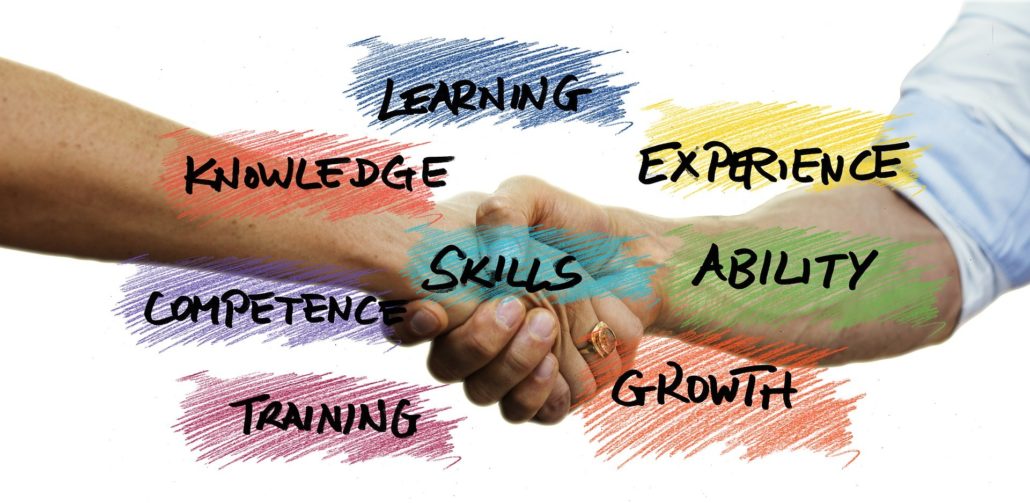As attention turns to life after restrictions ease, questions are being asked everywhere about workplaces and what leadership skills will be needed and how leaders will change.
If you aren’t asking those questions of yourself, here is why I believe you need to.
2020 has been THE year for disruption – talk of operating in VUCA environments (those are Volatile Uncertain Complex and Ambiguous) has become real life experience and reality with the pandemic, and in Australia following on from months of destructive bush fires.
Our employees have been disrupted in almost every facet of their lives – and certainly through the media content they are absorbing.
Your employees now and in the future are not the same as they were before.
They will need different leadership to what has been the norm.
Many of my connections and clients may read the list below and feel acknowledged and perhaps relieved – because I know that there are leaders who have already been leading this way.
The list of what I believe will be the profile of effective leaders in the very near future:
- communicative leadership style
- ability and willingness to have tough conversations
- proactive management and guiding of performance
- genuine empathy and human connection
- emotional agility – beyond emotional intelligence
- adaptive decision making
It will be a balancing act – requiring effort to achieve and maintain the harmony of these skills with leadership.

Some may struggle and the reality will be that old styles of leadership will not be accepted or tolerated.
Let me give you a little more on each item on the list for future leadership skills
1- Based on the necessity for regular and open communication during the recent crises, leaders will be expected to maintain that level of transparency in the future.
In many instances leaders who have done this well have noted that their employees have responded positively and that the open communication eased some of the pressure on the leaders – by engaging and involving employees, navigating through uncertain times becomes a shared journey.
2- There have been many, many challenging conversations held – and the reality is that in most cases the earlier items of concern can be discussed, the better it is.
Imagine a situation where there is a concern about the output of an employee – do you wait until it becomes a massive issue or have the courageous conversation early. Find out, explore what is happening and identify a way to resolve it. That’s the kind of tough conversation to have.
3- Proactively managing performance flows from having conversations but it also raises the question of how many managers/leaders have evaluated performance based on what they observe?
It’s much harder to observe employees when they are working from home and I’m quite sure that there are some employers who are wondering just how productive and effective their employees are while working from home.

The tools of the leadership trade need updating.
Some of the previous skills can be reapplied yet for many leaders there is a need to add some new tools to the tool kit.
4. Genuine empathy and human connection is what our employees have been craving from leaders. Not in the form of a warm cuppa and a hug, but the capacity to demonstrate that you care for people and to genuinely check in on their well being.
Almost every mental health support organisation and employee assistance program provider has reported significantly increased usage/calls. No it’s not for leaders to become counselors, but it is for leaders to show that we care. This can be as simple as acknowledging that constant video conferencing is hard on people and making some of your conversations with your team via the phone. (Who’d have thought that a mobile phone call would become “low tech” but it’s a helpful diversion from constant video chat and most of us walk around while on the phone – something you can’t do on video chat)
5. The concept of emotional intelligence has been known for some time yet the concept of emotional agility takes it further and challenges us to be able to adapt ourselves. Have a read of the work by Susan David and you’ll see what I mean.
6. Adaptive decision making or the ability to make and then re-make decisions is a key skill for VUCA environments.
The companies and employees that have managed best through recent times are the ones with leaders who were prepared to make decisions with limited information – sure some of those decisions were smaller than originally thought and/or were changed as information changed. The key element was that decisions were made – companies and leaders who waited too long to make a decision have suffered more than perhaps was necessary, and as a consequence so have their employees.

Leaders have a wonderful opportunity to learn and adapt and grow from what we have been through so far in 2020.
It’s what you expect from your teams – what a great opportunity to lead by example.
For anyone reading this who feels like they will need to re-wire their brains and their habits – please feel free to get in touch to explore if coaching or mentoring with me could support you.
For any readers who have comments or responses, please feel free to share them.
We are all navigating a changed and evolving work and living environment.

